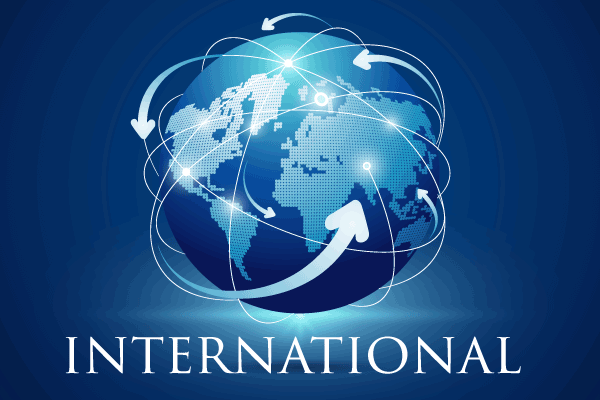
August 1 is the new expiration date for some countries’ tariff rates and the start of revised tariff rates for other nations.
On July 7, President Donald Trump signed an executive order delaying the expiration date of some tariff rates from July 9 to August 1. He also sent letters to inform 14 countries about their new reciprocal tariff rates starting August 1.
The administration said the tariffs are designed to make the terms of the bilateral trade relationships more reciprocal over time and to address the U.S. goods trade deficit.
For some countries, the revised reciprocal tariff rate is lower than the rate initially announced on April 2; for others, the reciprocal tariff rate is higher than the previous rate.
The administration sent letters to Japan, South Korea and 12 other countries (see chart), and said it would be sending out 15 to 20 more letters, along with a more general letter informing other countries of their new tariff rate.
| Country | April 2 Tariff | July 7 Tariff |
|---|---|---|
| Bangladesh | 37% | 35% |
| Bosnia and Herzegovina | 35% | 30% |
| Cambodia | 49% | 36% |
| Indonesia | 32% | 32% |
| Japan | 24% | 25% |
| Kazakhstan | 27% | 25% |
| Laos | 48% | 40% |
| Malaysia | 24% | 25% |
| Myanmar (Burma) | 44% | 40% |
| Serbia | 37% | 35% |
| South Africa | 30% | 30% |
| South Korea | 25% | 25% |
| Thailand | 36% | 36% |
| Tunisia | 28% | 25% |
On the morning of July 9, the President sent letters to another seven countries: Philippines, Brunei, Moldova, Algeria, Iraq, Libya and Sri Lanka. He wrote on social media that he would be releasing additional letters in the afternoon.
Since President Trump modified the tariff rates roughly 90 days ago, a number of countries have agreed or offered to lower their tariff rates and eliminate nontariff barriers to move toward a more balanced trade relationship with the United States.
Notwithstanding this significant and historic progress, the President said the U.S. trade deficit remains severe and agreements are still in the works.
April 2 ‘Liberation Day’
During an initial flurry of activity, the President temporarily placed tariffs on Colombia, Mexico and Canada. Then on April 2 — which he called “Liberation Day” — President Trump announced new reciprocal tariffs from the first Rose Garden ceremony, with a number of Cabinet officials and members of Congress in attendance.
According to the White House fact sheet, President Trump imposed responsive tariffs to “strengthen the international economic position of the United States and protect American workers.”
The President imposed a 10% tariff on all countries, effective April 5. He then imposed an individualized reciprocal higher tariff on the countries with which the United States has the largest trade deficits. All other countries will continue to be subject to the original 10% tariff baseline — effective April 9.
While President Trump’s trade policy announcements continued to create uncertainty, as well as affecting consumer prices, the stock market and consumer confidence, the President paused the tariffs for 90 days — until July 9, substantially lowered reciprocal tariffs during this period to 10%, yet raised the tariffs charged to China to a total of 145%.
Since April 2
The United Kingdom became the first country to secure a landmark economic deal with the Trump administration. This will reduce tariffs across a range of sectors, from steel and aluminum to automotives, and cut costs for businesses operating in the UK.
President Trump also struck a separate agreement with China to lower some tariffs.
The United States has reached a preliminary trade deal with Vietnam that includes a 20% tariff on imports to the U.S and a 40% tariff on goods shipped through Vietnam from other nations.
The European Union agreement is expected soon.
U.S. talks with Cambodia and India also have advanced.
CalChamber Position
The California Chamber of Commerce continues to voice concern about tariffs and any other actions that create uncertainty and increase the cost of doing business for California entrepreneurs. The CalChamber has long been committed to supporting a national free trade agenda that fosters economic growth and job creation.
The CalChamber will continue to focus on eliminating tariff and nontariff barriers to support the expansion of American exports. While strategic use of tariffs or the threat of tariffs may be a meaningful negotiation tool, the CalChamber supports efforts to reduce taxation and regulatory burdens as a means to create jobs and economic growth. Further, a focus on trade agreements instead will ultimately lower both tariff and nontariff barriers and help create long-term, sustainable economic growth.
The CalChamber opposes protectionist measures which create uncertainty, disrupt global supply chains, raise consumer prices, limit choices of products for consumers, hinder the competitiveness of California businesses, and invite retaliation.
The CalChamber believes strengthening economic ties and enhancing regulatory cooperation through agreements with our top trading partners that encompass both goods and services, including financial services, is essential to eliminating unnecessary regulatory divergences that may act as a drag on economic growth and job creation.
The CalChamber seeks commercially meaningful outcomes in negotiations with regions around the world and supports bilateral, regional and multilateral trade agreements, which are critical to consumers, workers, businesses, farmers and ranchers, and would allow the United States to compete with other countries that are negotiating agreements with each other.
California’s economy is diverse, and the state’s prosperity is tied to exports and imports of both goods and services by California-based companies, to exports and imports through California’s transportation gateways, and to movement of human and capital resources.
International trade and investment are major parts of our economic engine that broadly benefit businesses, communities, consumers, and state government.

